Resource Center
The Transit Workforce Center is pleased to host a curated collection of publications and other materials to assist stakeholders engaged in transit workforce development. The Resource Center includes case studies, training materials, research reports, and other materials of interest, including publications produced by federal government agencies, transit organizations, and independent research entities. Resources may be filtered by topic, resource type, and transit mode. This TWC blog post explains how to use the Resource Center.
We are continuing to update the Resource Center regularly. Please contact us via the Request Help menu option if you would like assistance using the Resource Center or are looking for resources on a particular topic. We also welcome suggestions of topics or specific resources to add.
Content in external resources linked from the Resource Center is solely the responsibility of the resource authors and does not necessarily reflect the perspectives of or endorsement by the Transit Workforce Center.
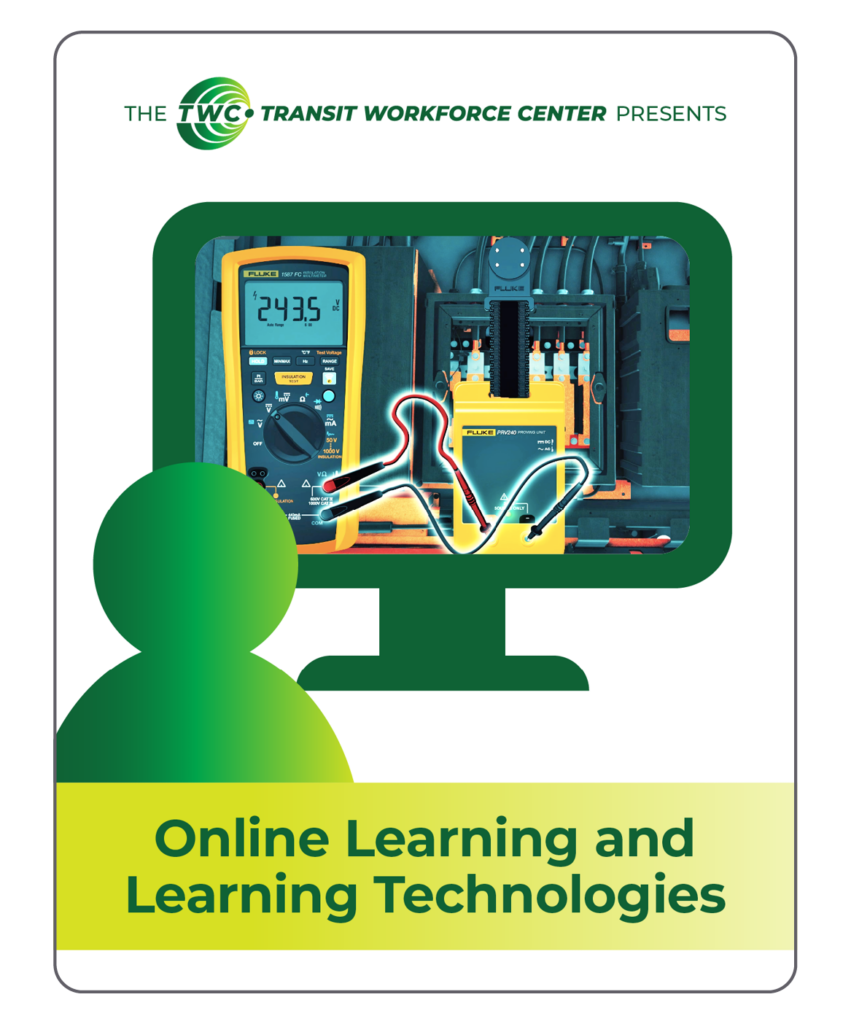
Online Learning and Learning Technologies Webinar
On October 25, 2022, TWC hosted an exciting webinar that explores online training, best practices in training delivery, and exciting trends in online technology for the transit industry.
Transit Workforce Center
October 2022
TOPICS: Training
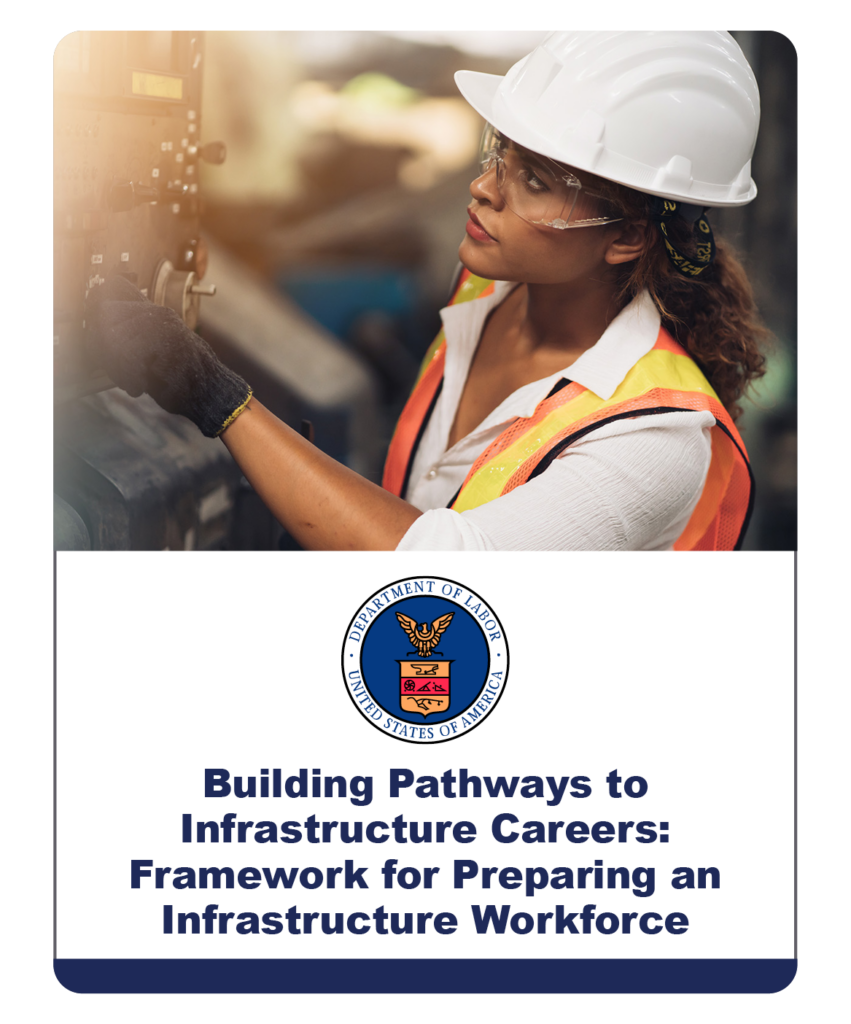
Building Pathways to Infrastructure Careers: Framework for Preparing an Infrastructure Workforce
This resource provides a framework for all workforce stakeholders, including infrastructure project leads, to engage the public workforce system in implementing the Bipartisan Infrastructure Law with strong workforce commitments and proven strategies that produce high-quality education, training, and employment opportunities for all workers.
U.S. Department of Labor, Employment and Training Administration
October 2022
TOPICS: Apprenticeship, Career Pathways, Community Engagement, Hiring and Recruitment, Labor-Management Partnerships, Low-No, Policy and Planning, Procurement, Retention, Training
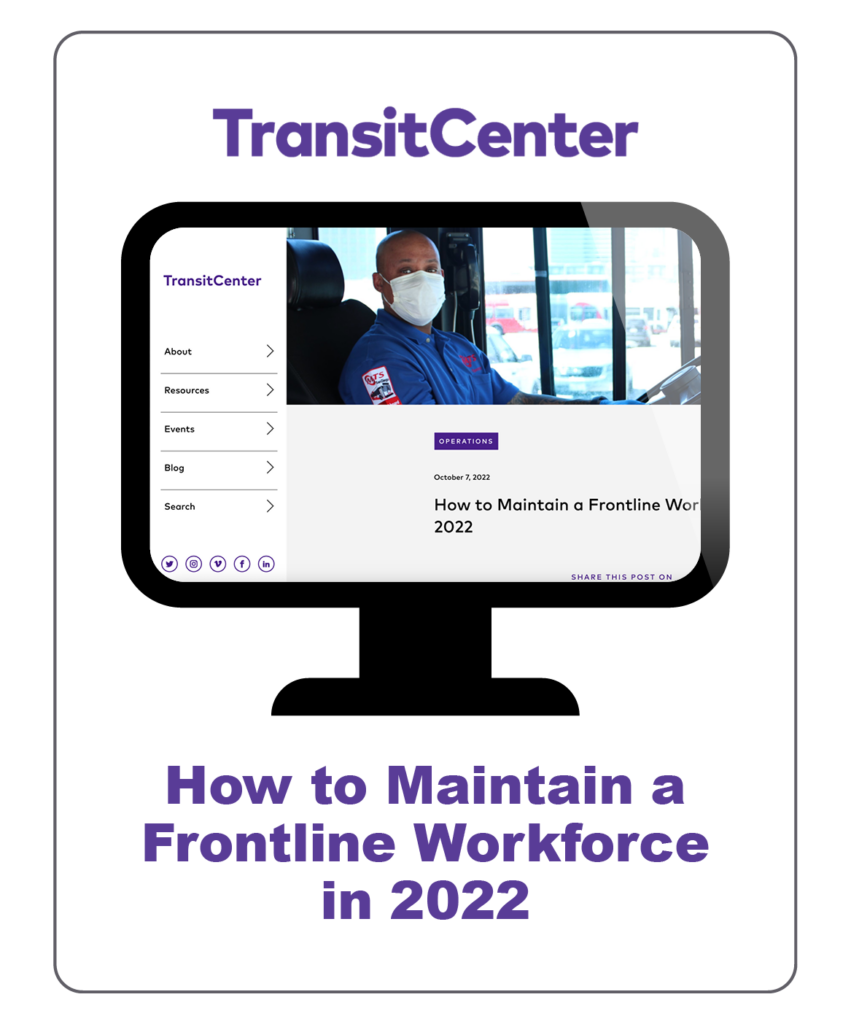
How to Maintain a Frontline Workforce in 2022
This blog post considers steps taken by transit agencies in New York City and San Diego in order to bolster and maintain their frontline workforces in the aftermath of the pandemic and years of labor shortages in the transit industry.
TransitCenter
October 2022
TOPICS: Hiring and Recruitment, Retention
This blog post considers steps taken by transit agencies in New York City and San Diego in order to bolster and maintain their frontline workforces in the aftermath of the pandemic and years of labor shortages in the transit industry. The post describes actions like increasing wages, easing CDL requirements, and increasing recruitment efforts.
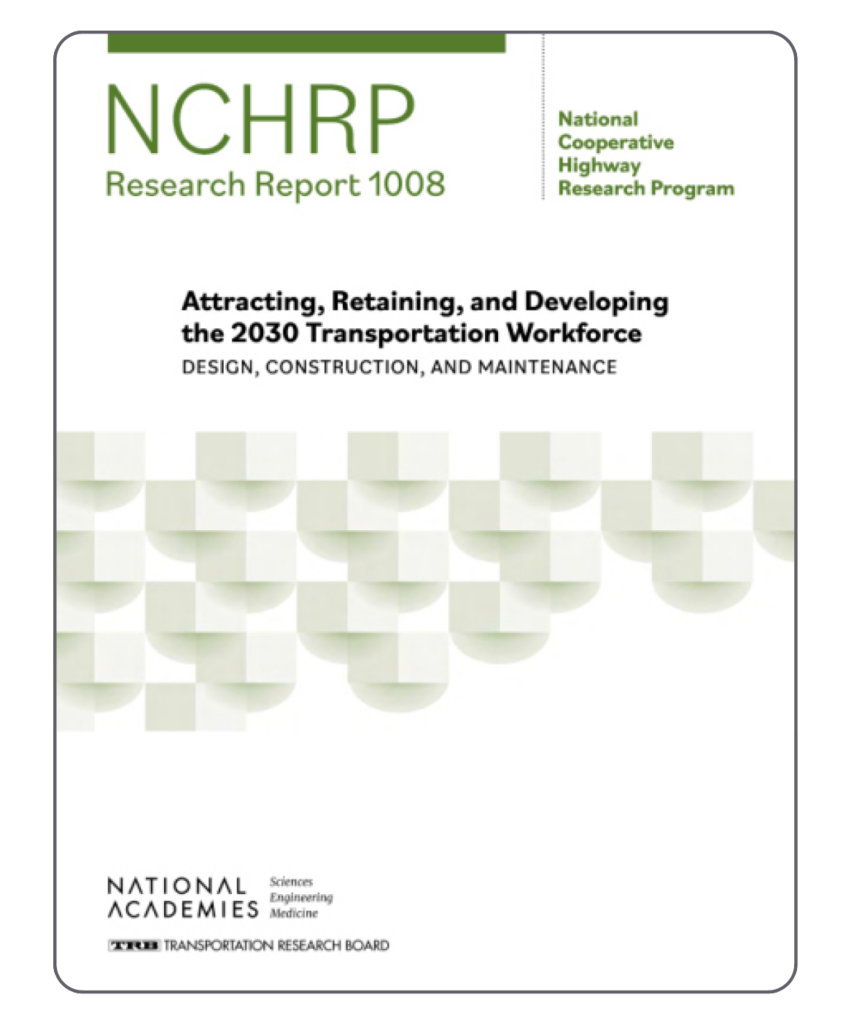
Attracting, Retaining, and Developing the 2030 Transportation Workforce
This report provides a guide with specific strategies and action plans to help agencies identify and address workforce needs through 2030 and beyond.
National Cooperative Highway Research Program
October 2022
TOPICS: Community Engagement, Policy and Planning, Procurement, Retention, Trainer and Mentor Development, Training
State departments of transportation are responsible for providing a safe, efficient, and effective transportation system of infrastructure and services. To meet these responsibilities, transportation agencies need a highly skilled workforce with the expertise required to identify and address current transportation needs while also being prepared to address the challenges of the future.
Contributor(s): National Academies of Sciences, Engineering, and Medicine; Transportation Research Board; National Cooperative Highway Research Program; Candace Blair Cronin; Allison Alexander; Grace Arnold; Juan Carlos Batarse; Kelly Dray; Sasha Iliev; Jessica Jenkins; Erik Smallwood; Rachel Smart; Jake Streng; Mara Campbell; Susan Gallagher; Tyler Reeb; Tom O’Brien; Glenn McRae
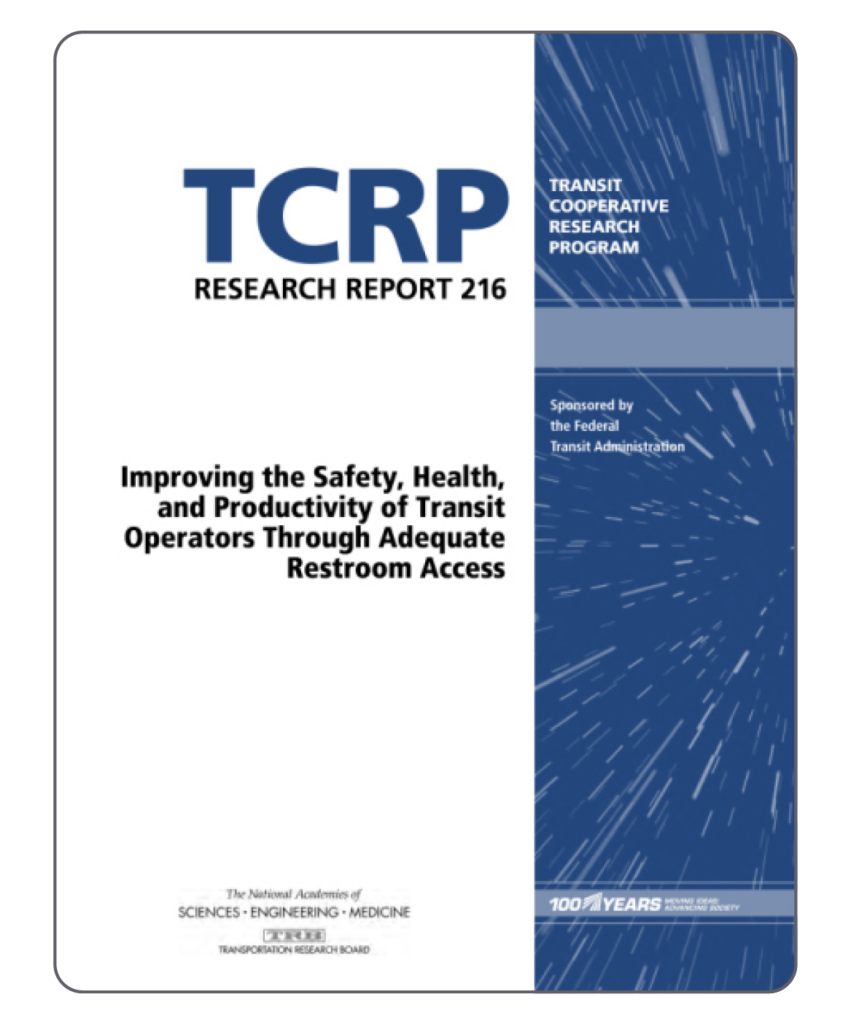
Improving the Safety, Health, and Productivity of Transit Operators Through Adequate Restroom Access
This report presents a catalog of good practices, tools, and resources that provide a foundation for implementable strategies to improve restroom access, primarily for transit vehicle operators. The report compiles research from 100 transit agencies on current and best practices; the impact of restroom access on health, safety, and operations, and lessons learned.
Transit Cooperative Research Program
October 2022
TOPICS: Policy and Planning, Safety and Health
A toolbox accompanying the report includes helpful resources such as restroom inventory, planning, and cost estimation tools, as well as templates for restroom access policies and contract language.
Contributor(s): National Academies of Sciences, Engineering, and Medicine; Transportation Research Board; Transit Cooperative Research Program; Robin Mary Gillespie, City University of New York; RLS & Associates Robbie Sarles
 Improving the Safety, Health, and Productivity of Transit Operators Through Adequate Restroom Access
Improving the Safety, Health, and Productivity of Transit Operators Through Adequate Restroom Access
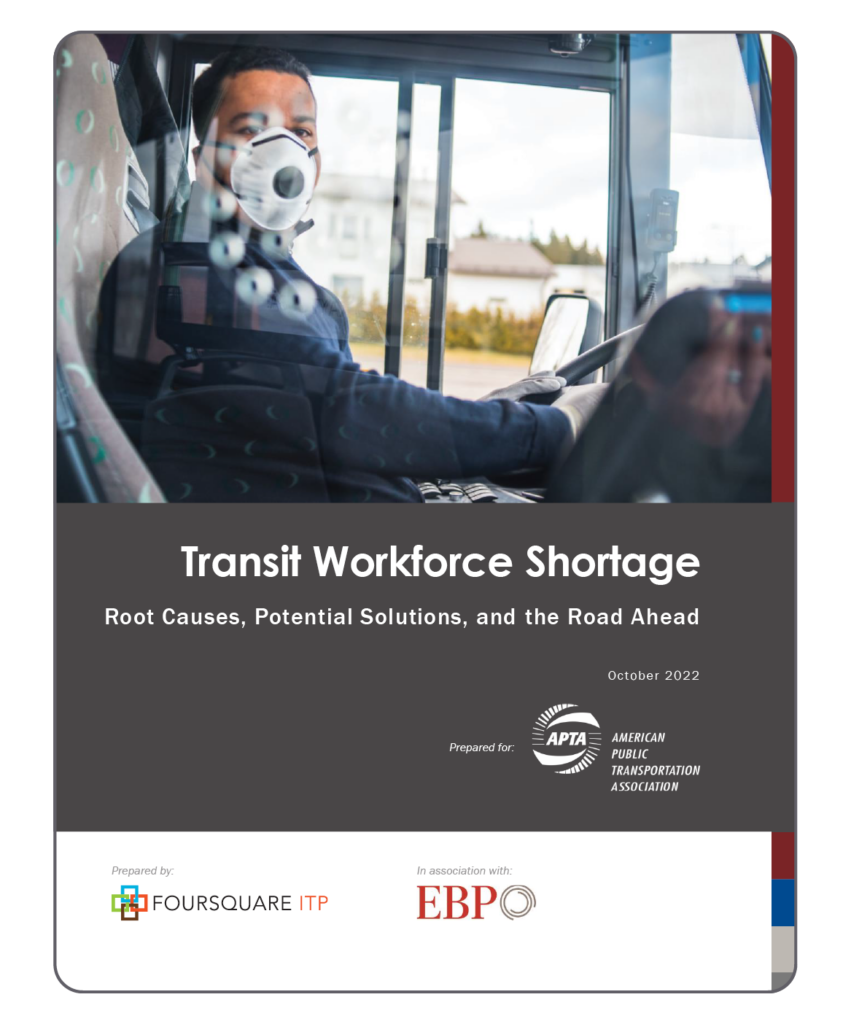
Transit Workforce Shortage: Root Causes, Potential Solutions, and the Road Ahead
This Interim Findings Report from APTA synthesizes findings about the transit industry workforce shortage from a survey of transit agencies and background research into the macro causes of the shortage.
American Public Transportation Association
October 2022
LEARN MORE
Public transit providers across North America face a shortage of operators and mechanics during a period of economic instability and reshuffling exacerbated by the COVID-19 pandemic. However, agencies’ ability to respond to the worker shortage has been hampered by inadequate information about its causes and effects. The Transit Workforce Shortage Study builds a framework for APTA, its members, and its partner organizations to better understand the workforce shortage’s causes and provides best practices for recruiting, hiring, and retaining transit operations workers. The study is comprised of two phases. This document, the Interim Findings Report, synthesizes the findings from Phase 1, which included a survey of transit agencies and background research into the macro causes of the shortage.
This report was followed by a full synthesis report and toolkit.

Women in the Workplace 2022
Launched in 2015 by LeanIn.Org and McKinsey & Company, Women in the Workplace is the largest study on the state of women in corporate America. The summary from WTS International outlines the report’s implications for the transportation workforce.
LeanIn.Org; McKinsey & Company; WTS International
October 2022
TOPICS: Career Pathways, Community Engagement
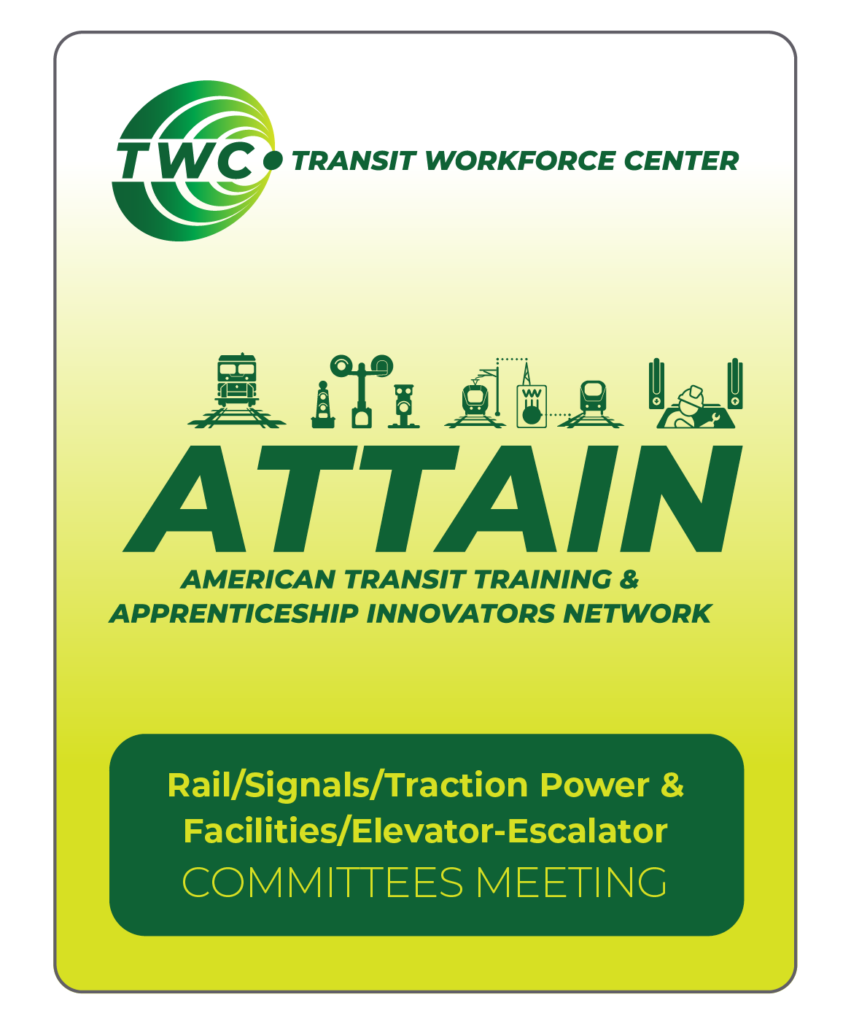
ATTAIN Rail/Signals/Traction Power and Facilities/Elevator-Escalator Committees Meeting
This recorded meeting of the ATTAIN committees for Rail/Signals/Traction Power and Facilities/Elevator-Escalator serves as a resource for transit industry stakeholders and includes presentations on apprenticeship and case studies of successful programs across the country.
Transit Workforce Center
September 2022
LEARN MORE
The American Transit Training and Apprenticeship Innovators Network (ATTAIN), run by the Transit Workforce Center (TWC), is a peer network created for transit agencies and labor unions to explore new apprenticeship programs or enhance existing programs for their frontline workforce.






